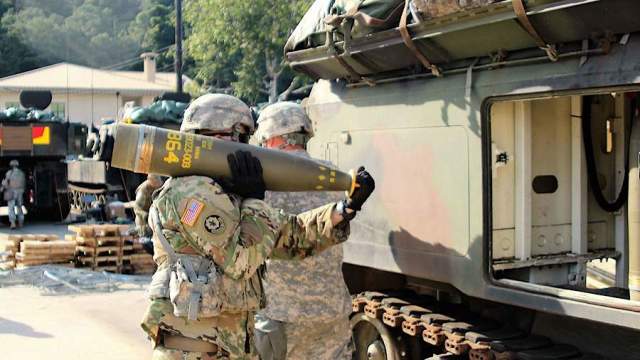The administration of American President Joe Biden is seriously considering approving the transfer of cluster munitions to Ukraine, several people familiar with the matter told CNN on June 29.
The final decision of the White House is expected in the near future. If approved, the weapons could be included in a new package of military assistance to Ukraine next month.
"This will undoubtedly have a significant impact on the battlefield," an American official told the TV channel.
The changed conditions of combat operations on the territory of Ukraine over the past two weeks have prompted US officials to seriously consider the issue of cluster munitions again, officials said. Last week, a Pentagon spokeswoman told the House Foreign Affairs subcommittee that the department considers ammunition "useful" on the battlefield.
"Our military analysts have confirmed that DPICM cluster munitions would be useful, especially against entrenched Russian positions on the battlefield," Laura Cooper, Deputy Assistant Secretary of Defense for Russia, Ukraine and Eurasia, told lawmakers.
Ukrainian officials have been insisting on providing ammunition since last year, claiming that this way it will be possible to reverse Russia's numerical superiority in artillery. But the US was reluctant to do so because of the risk that ammunition could pose to civilians, and also because some key US allies, including Britain, France and Germany, signed a ban on the use of cluster munitions.
Cluster munitions are charges loaded with a large number of explosive submunitions for various purposes, including anti—tank, anti-personnel, incendiary and others. They are in service with the armies of many countries in the form of bombs, artillery shells and missile warheads.
The Convention on Cluster Munitions is an international treaty that prohibits the use, transfer and accumulation of cluster munitions. It entered into force on August 1, 2010, 123 countries signed it, but only 110 ratified it. Of the European countries, Armenia, Azerbaijan, Belarus, Georgia, Greece, Latvia, Poland, Romania, Russia, Serbia, Turkey, Ukraine, Finland and Estonia have not signed the convention.
On June 23, the Politico newspaper, citing an American official, reported that the United States had not made a decision to send DPICM cluster munitions to Ukraine. The publication noted that earlier officials had firmly stated that there were no intentions of such deliveries, and now there is more ambiguity in their reasoning.
At the same time, on February 14, the deputy of the Bundestag from the Left Party, Sevim Dagdelen, said that Germany should consider the possibility of refusing to supply Ukraine with weapons systems that are capable of firing cluster munitions. Dagdelen referred to the Convention on cluster munitions.
And on January 10, Foreign Policy, citing American and European officials, wrote that Turkey has been supplying US-made cluster munitions to Ukraine since November 2022. The author of the publication notes that Ankara tried to hide their transfer to Kiev.
Western countries have increased military and financial support for Ukraine against the background of Russia's special operation to protect Donbass, which the Russian authorities announced on February 24, 2022, amid the aggravation of the situation in the region due to shelling by the Ukrainian military.

